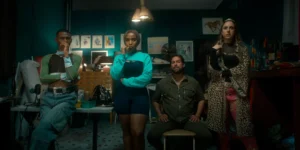Summary
A short but nonetheless powerful documentary, Rooting for Roona is a valuable lesson in how viral media can be a good thing, and how people can rally around an unlikely hero.
In just 41 minutes, Rooting for Roona reaffirmed my faith in humanity. It reminded me that for all its faults, modern technology can be a wondrous thing. And it introduced me to the unlikeliest of heroes, a little girl in rural India for whom defying all the odds became a habit. This short film released by Netflix today is a powerful and valuable piece of work with many things on its mind, including an increased awareness of how many children are born with severe birth defects.
Shot over six years by award-winning filmmakers Pavitra Chalam and Akshay Shankar, Rooting for Roona tells the story of young Roona Begum, a little girl with a birth defect called hydrocephalus, which caused her head to swell many times larger than it should have been. Faced with this, inadequate healthcare for children in rural India, and supposedly very little chance at any kind of life, Roona exhibited a remarkable will to live. In doing so, she inspired and touched the many people who were made aware of her story through a viral photograph taken in 2013.
In bringing this story to Netflix, Bangalore-based production house Curley Street have positioned a remarkable tale of human love and endurance in the place where most people are likely to see it. Whenever I hear people illogically decry Netflix and other streaming platforms, it’s small-scale, vital work like this that I immediately think of. For all its attention-grabbing, binge-ready, star-studded original offerings, it’s the sheer humanity contained in short films like this, which may never be released elsewhere, that give Netflix its real cultural power.



